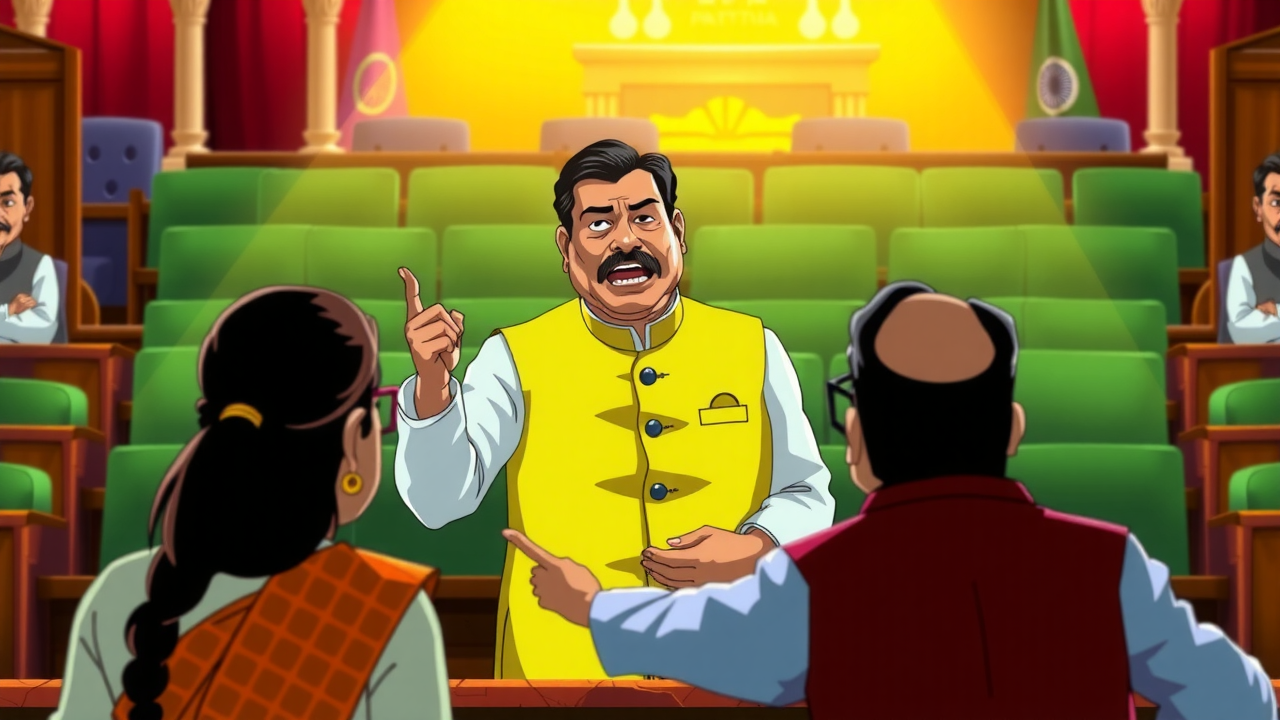The Waqf (Amendment) Bill, 2024, introduced by Union Minister Kiren Rijiju, proposes significant changes to the Waqf Act, 1995, aiming to enhance the management of waqf properties. However, the Bill has sparked intense debate in Parliament, with the Opposition raising concerns about constitutional v

On August 8, 2024, during the Monsoon Session of Parliament, Union Minority Affairs Minister Kiren Rijiju introduced the Waqf (Amendment) Bill, 2024 in the Lok Sabha. The Bill proposes about 40 amendments to the existing Waqf Act, 1995 (as amended in 2013), aiming to reform the administration and management of waqf properties. After an intense debate, the Bill was referred to a Joint Parliamentary Committee for further scrutiny. The Opposition strongly opposed the Bill, citing concerns about constitutional violations, federalism, and religious freedoms.
Key Amendments and Revisions:
Changes to Definitions and Regulatory Provisions:
- Section 3(r) now defines waqf as the permanent dedication by any person practicing Islam for at least five years and who has ownership of the property. It further refines Waqf-alal-aulad to specify that when the line of succession fails, income from the waqf must be used for education, development, and the welfare of widows, divorced women, and orphans.
- Sections 3A, 3B, and 3C introduce new conditions for the creation and management of waqf properties, including a requirement for filing details of waqf properties on a centralized portal and database. Wrongful declaration of government property as waqf is also addressed, requiring the Collector to conduct an inquiry and submit a report before any property can be deemed as waqf.
Roles and Responsibilities Adjustments:
- The role of the Survey Commissioner under Section 4 of the 1995 Act has been replaced by the Collector, who will now conduct surveys and exercise jurisdiction over waqf properties. The classification of waqf properties now includes ‘Aghakhani waqf’ and ‘Bohra waqf’.
- Under Section 36, waqf properties cannot be registered without an executed waqf deed and must be processed through the online portal. The Collector is mandated to conduct an inquiry into the genuineness of waqf applications, especially if the property is in dispute or government-owned.
Dispute Resolution and Public Notification:
- Section 6 has been amended to allow suits challenging the Waqf Tribunal’s decisions within two years of the publication of the list of auqaf, extending the original one-year limit. Section 40 has been omitted, which previously allowed the Waqf Board to decide whether a property was waqf.
- Section 5 now requires revenue authorities to issue a 90-day public notice before updating land records after a waqf property is listed, allowing affected persons to be heard.
Structural Changes in Waqf Governance:
Constitution of Waqf Boards and Councils
- Section 9 stipulates that the Central Waqf Council must now include two women members and two non-Muslim members. Similarly, Section 14 revises the composition of the Board of Auqaf, requiring two women and two non-Muslim members, and representation from Shia, Sunni, Bohra, and Aghakhani communities if they have functional auqaf in the State.
Audit and Accountability
- Section 47 introduces changes to the audit process, requiring audits of waqf accounts by auditors from a State Government panel. The Central Government is also empowered to direct audits through auditors appointed by the Comptroller and Auditor-General of India and can order the publication of audit reports.
Opposition’s Concerns:
Constitutional and Religious Freedom Issues
- MPs K.C. Venugopal, Kanimozhi Karunanidhi, and E.T. Mohammed Basheer raised concerns that the Bill violates Articles 25, 26, and 30 of the Constitution, which protect religious freedom and the rights of minorities to manage their own religious affairs. They particularly opposed the inclusion of non-Muslim members in the Waqf Council and Auqaf Board, viewing it as an infringement on religious autonomy.
- Venugopal and others also argued that managing waqf properties constitutes an essential religious practice for Muslims, and any government interference would violate Articles 14 and 15 by discriminating on religious grounds.
Federalism and Legislative Competence
- The Opposition criticized the Bill for undermining federalism by encroaching on matters that fall within the State List under Schedule VII of the Constitution. Supriya Sule highlighted the lack of stakeholder consultation and argued that the Central Government’s new rule-making powers for waqf regulation sideline cooperative federalism.
Government’s Defense and Justification:
- Kiren Rijiju defended the Bill by asserting that the proposed amendments are based on the recommendations of the Sachar Committee and the 1976 Waqf Inquiry Report. He argued that the Waqf Board does not fall within the purview of Articles 25 and 26, citing the Bramchari Sidheswar Bhai & Ors. v. State Of West Bengal (1995) case.
- Rijiju also justified the Bill’s provisions as falling within the legislative competence of the Central Government under Entry 10 (Trust and Trustees) and Entry 28 (Charities and charitable institutions) of the Concurrent List.





